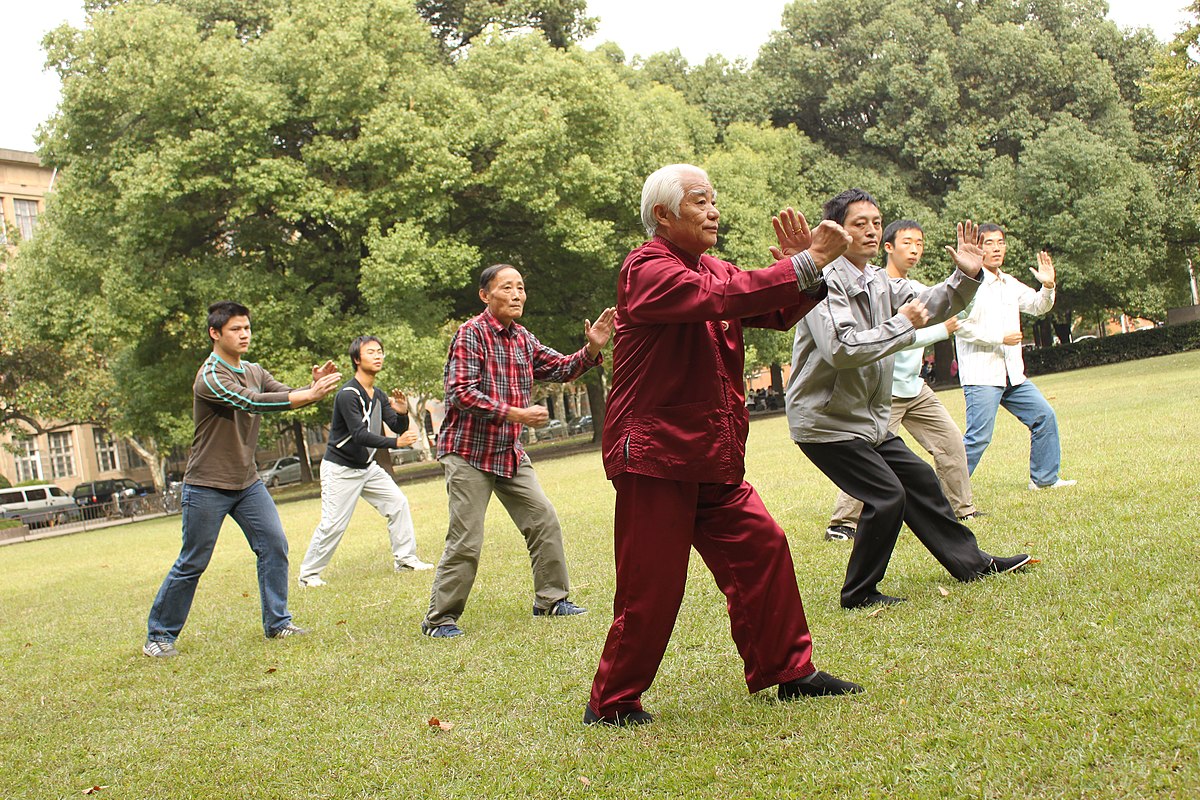Slow, deliberate, beautiful movement is the essence of tai chi. A practice that melds the mind and the body, tai chi improves balance and muscle strength while reducing stress and calming the mind. And you can learn all about it in the Garden’s upcoming wellness series, 24-Form Tai Chi.
24-Form Tai Chi
Oct. 2, 9, 16, 23 and 30
and Nov. 6,
3 – 4 pm
“I love the beauty of the movement,” says course instructor Edwina Taylor. “It’s so graceful and lyrical, and it becomes a wonderful, meditative experience.”
Taylor, who also teaches Gentle Yoga at the Garden, came to tai chi after several years practicing yoga. She took several courses both in person and online and learned that while she loved the practice, she didn’t like how it was often taught.
“Most teachers dive into the minutiae of the movements right away. Exactly how you are to hold your hand, or where to place your elbow,” she says. “I thought, if I ever teach this I’m going to go about it a different way.”
Taylor’s way is to start by teaching the big picture of the different poses and movements of tai chi and leaving the refinement of hands and elbows for later–if ever. “I’m not into the minutia. It’s fun, it’s movement, it’s memory and it’s mobility,” says Taylor.
Taylor will teach 24 different movements known as forms, each with a lyrical name translated from Chinese such as “Parting the Wild Horse’s Mane,” “White Crane Spreads Its Wings” and “Needle at the Bottom of the Sea.” Each form consists of a series of movements involving arms and legs, shifts of balance and breath.
All of the movements are deliberate, graceful and flowing. While some forms are derived from martial arts, they have been relaxed and slowed. Students are encouraged to focus on their breath and their bodily sensations, making tai chi a type of meditation.
The course will take place on the Moon Deck at the Japanese Garden, weather permitting, adding the beauty of the Garden in fall to the experience.
The deliberate pace and gentle movements make tai chi suitable for individuals at all levels of physical fitness, including older adults and those recovering from injury. Students should wear comfortable, loose-fitting clothes. If they are comfortable doing so, they can practice barefoot; if they prefer shoes, the shoes should allow movement and balance. No supplies such as yoga mats are needed; the only thing Taylor encourages students to bring along are water bottles.
Medical studies have pointed to multiple health benefits of tai chi. According to the New York Times:
Research suggests tai chi can also improve balance and mobility, including in people with neurological conditions like Parkinson’s disease. It also helps prevent falls in older adults. By strengthening surrounding muscles, tai chi also reduces strain on joints, said Dr. Amanda Sammut, the chief of rheumatology at Harlem Hospital and an assistant clinical professor of medicine at Columbia University.
For this reason, it’s recommended in guidelines for managing knee and hip osteoarthritis from the American College of Rheumatology. Studies also suggest two to three sessions per week may lead to improvements in depression, anxiety, psychological well-being and cognitive flexibility.
Taylor intends to continue to offer tai chi courses, including a series in the spring to teach a longer set of movements known as 48-Form. “It’s totally new to many people, and it’s going to be fun,” says Taylor. “I’ll see you there!”







